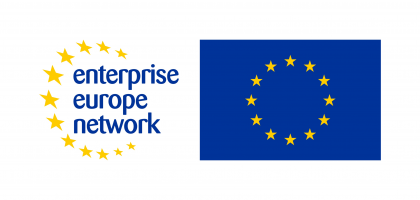Events calendar
About us
Klaipeda Chamber of Commerce, Industry and Crafts (KCCIC) consolidates more than 280 members among which - are the biggest companies in the region and representatives of small and medium-sized businesses. The Chamber also represents the interests of entrepreneurs and business development objectives in the Klaipeda and Taurage regions.
Promoting the export and development of small and medium-sized businesses, the Chamber takes part in various international projects and programs.
59
Seminars, conferences, discussions, meetings
140
Individual
business meetings
137
Foreign business offers sent personally
10
Cooperation agreements signed
Activities
The Chambers of Commerce, Industry and Crafts of Lithuania are non-state, non-profit self-government entrepreneurial organizations, that effectively participate in the international system of chambers of industry and commerce. Chambers of commerce, industry and crafts operate in five major Lithuanian cities: Vilnius, Kaunas, Klaipėda, Šiauliai and Panevėžys. They are united under the Association of Lithuanian Chambers of Commerce, Industry and Crafts, which is a member of the Association of European Chambers of Commerce and Industry ("Eurochambers") and the Baltic Sea Chambers of Commerce Association.
The Chambers of Commerce, Industry and Crafts in Lithuania operate in compliance with the law adopted in 1995; it is the only self-government entrepreneurial organization operating under a separate law. According to the provisions of the law, membership in the Chamber is voluntary. The principal objective of the Lithuanian Chamber of Commerce, Industry and Crafts is to represent the interests of its members, and render them necessary services.
Klaipėda Chamber of Commerce, Industry and Crafts unites more than 280 members, which include major enterprises in the region and companies representing medium and small businesses. The Chamber represents the interests of the businessmen of the Klaipėda and Tauragė regions and promotes business development in this part of the country. The Chamber promotes the development of small and medium enterprises, and also export, taking an active part in various international projects and programs.
- Promotes foreign trade.
- Influences the development of small and medium enterprises.
- Provides information on business offers received from foreign companies.
- Searches for foreign partners at the request of the members of the Chamber.
- Distributes information about the members of the Chamber and their businesses to embassies and counterpart chambers abroad.
- Provides information about exhibitions, trade fairs, and conferences held in Lithuania and abroad.
- Makes arrangements for business missions, visits to companies, and meetings with foreign businessmen.
- Organizes seminars, training courses for businessmen, conferences, and presentations.
- Renders assistance to organizers of vocational training in the region.
- Issues Certificates of Origin of Goods.
- Issues ATA Carnets.
- Issues GS1 bar codes.
- Certifies certificates confirming the force-majeure circumstances, and the authenticity of international operation documents.
Other documents:
- ARTICLES OF Klaipėda Chamber of Commerce, Industry and Crafts (current edition)
- Lithuanian Republic Law of Chamber of Commerce, Industry and Crafts (current edition)
- The alteration of Lithuanian Republic Law I-1093 5 of Chamber of Commerce, Industry and Crafts (current edition)

















